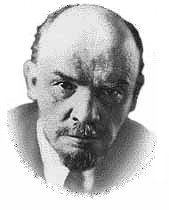I’ve just finished A Star Called Henry. What a cracking read; the narrative just fairly gallops along and the imagery is so clever and engaging. I felt as if I was being swept along in a torrent of language, imagery.. testosterone. The pace is tremendous.
Our hero, Henry, is the son of Melody and Henry Smart. Henry Sr. is a one-legged whorehouse bouncer and part-time assassin for one of Dublin’s power-mongers. Melody is a broken woman, laid low by the loss of too many babies and a life of grinding poverty. The life of grinding poverty is a little at odds with the fact that Henry Sr. is never out of work but we take it as read.
The story takes us from Dublin at the turn of the twentieth century and starts with young Henry’s imagined tale of his maternal grandmother’s early days in the city:-
She might have walked from Roscommon or Clare, pushed on by the stench of the blight, walked across the country till she saw the stone-eating smoke that lay over the piled, sagging fever-nests that made our beautiful city, walked in along the river, deeper and deeper, into the filth and shit, the noise and the money. A young country girl, never kissed, never touched, she was scared, she was thrilled. She turned around and back around and saw the four corners of hell. Her heart cried for Leitrim but her tits sang for Dublin. She got down on her back and yelled at the sailors to form a queue. Frenchmen, Danes, Chinamen, the Yanks. I don’t know. A young girl, a waif, just a child, aching for food. She’d left her family dead in a ditch, their chops green with grass juice, their bellies set to explode in the noonday sun. I don’t know any of this. She might have been…
Henry conspires to imagine the legend of his parents and grandparents backgrounds while, simultaneously constructing the legend of himself. His story sweeps through Ireland’s fight for independence, and crucially the events of the occupation of Dublin’s GPO during the 1916 Easter Uprising. Henry is “there” fighting alongside, and rutting lustily in the basement at the height of the battle, with his old schoolteacher, the feisty Miss O’Shea.
Doyle places Henry at the heart of these historical events and we can view them and the major players, Michael Collins, Joseph Plunkett, Patrick Pearse etc., through the prism of Henry’s “eye-witness”. This allows Doyle to impose his own interpretation on these historical events, the main players, and their consequences and this becomes especially important when the novels characters provide their own justification for engaging in some terrible and murderous acts. I was especially taken by Henry’s fellow rebel, Jack Dalton, when he and Henry were discussing the outcome of their “struggle”.
- It’ll soon be over, I said.
- I will in its hole, said Jack. – You don’t honestly think that, do you?
- It had crossed my mind, I said;.
- Uncross it then, he said. – We haven’t a hope, man. Am I depressing you at all?
- No.
- Good. We cannot win and winning is not our intention. What we have to do, all we can do, is keep them at it until it becomes unbearable. To provoke them and make them mad. We need reprisals and innocent victims and outrages, and we need them to give them to us. To keep at them until the costs are so heavy they’ll decide to go. But we’ll never beat them.
You'll note here that the innocent victims and the outrages are to be given to the rebels by the Brits and I wonder if Doyle has the airbrush out here. Otherwise that is as good a rationale for terrorism as you’re likely to come across anywhere and Doyle, through Henry, continues to make the point when Henry is engaged in training of his guerrilla fighters in Ireland’s far west.
This is a great book. A great read with everything you would want in a story - love, romance, sex, war, grief, and finally redemption. Doyle has a way with narrative, and this story, unlike some of his others, is mainly narrative with less dialogue than we expect of him. The novel is written in the first person with Henry Smart as the narrator. I like the style of Doyle’s books whereby he eschews quotation marks in dialogue in favour of just a simple – at the beginning of the line to show us the character is speaking. It makes the process simple and, I think, contributes to the pace of the story.
Wednesday, January 02, 2008
Subscribe to:
Post Comments (Atom)


1 comment:
A Star Called Henry is pure class. It inspired me to visit Killmainham Gaol in Dublin. The actual manhole cover that Henry 'allegedly' escaped into, is actually there!
Roddy Doyle is unique, a real class act.
Post a Comment